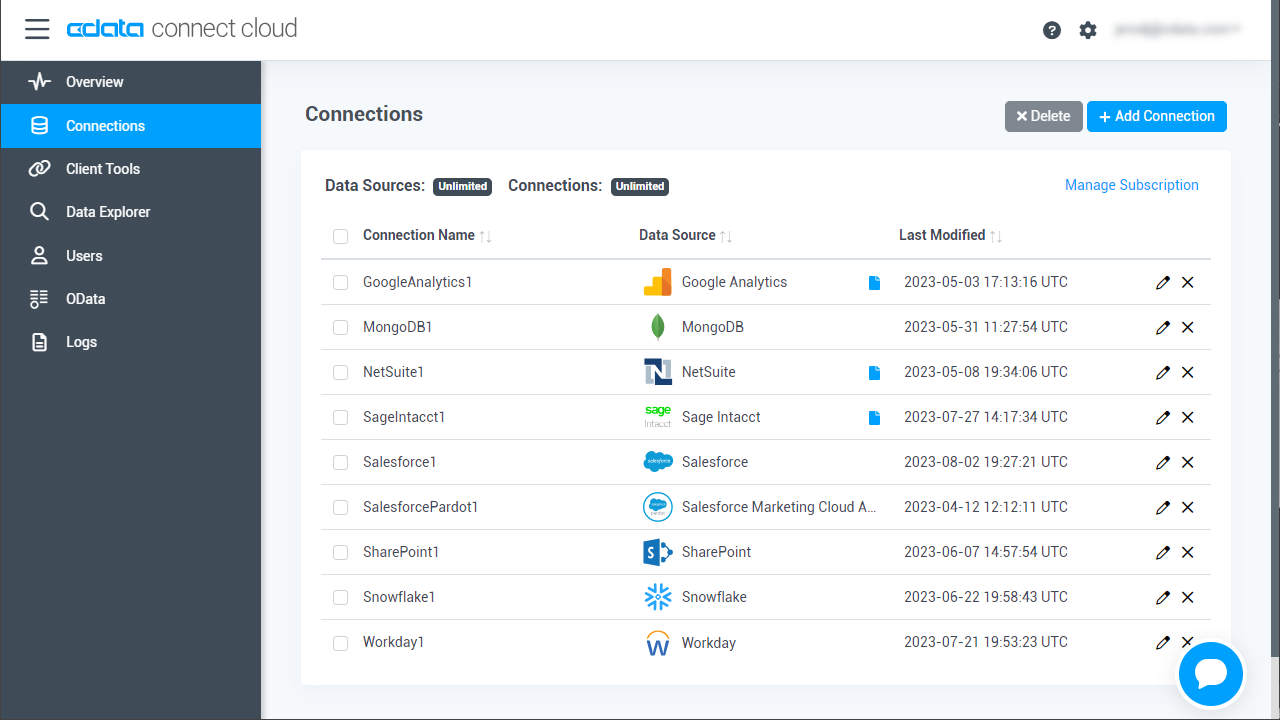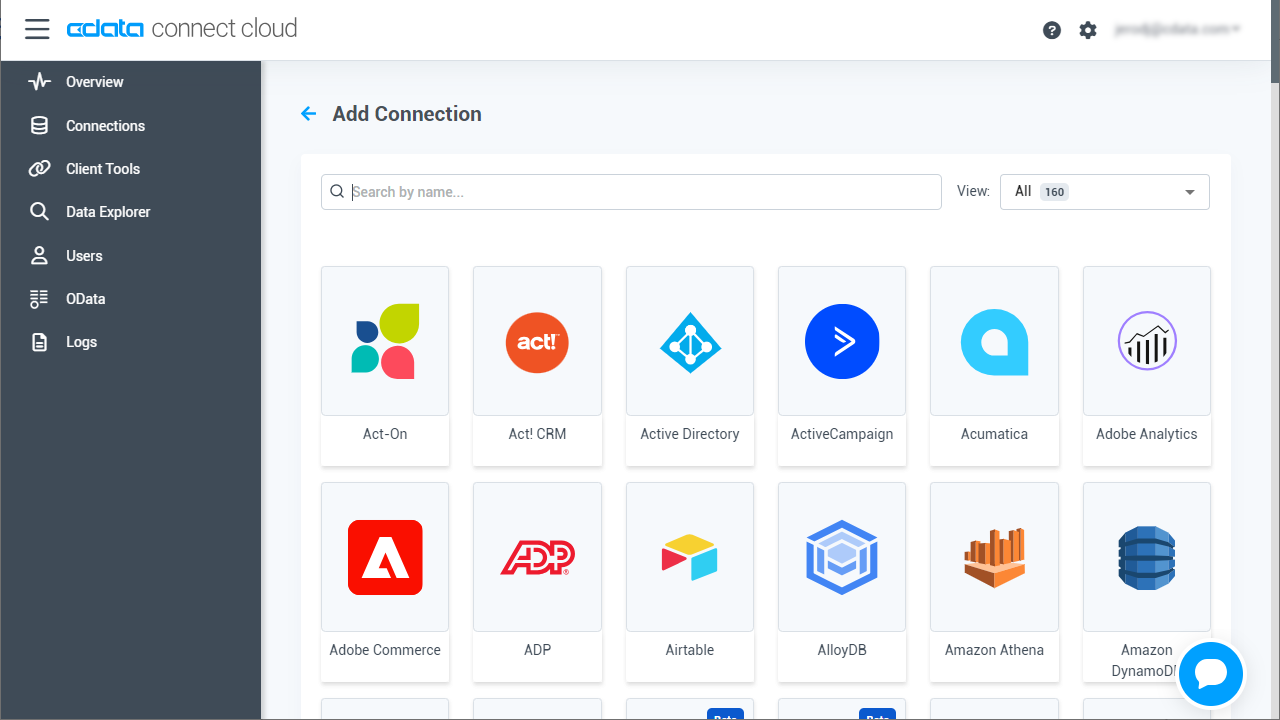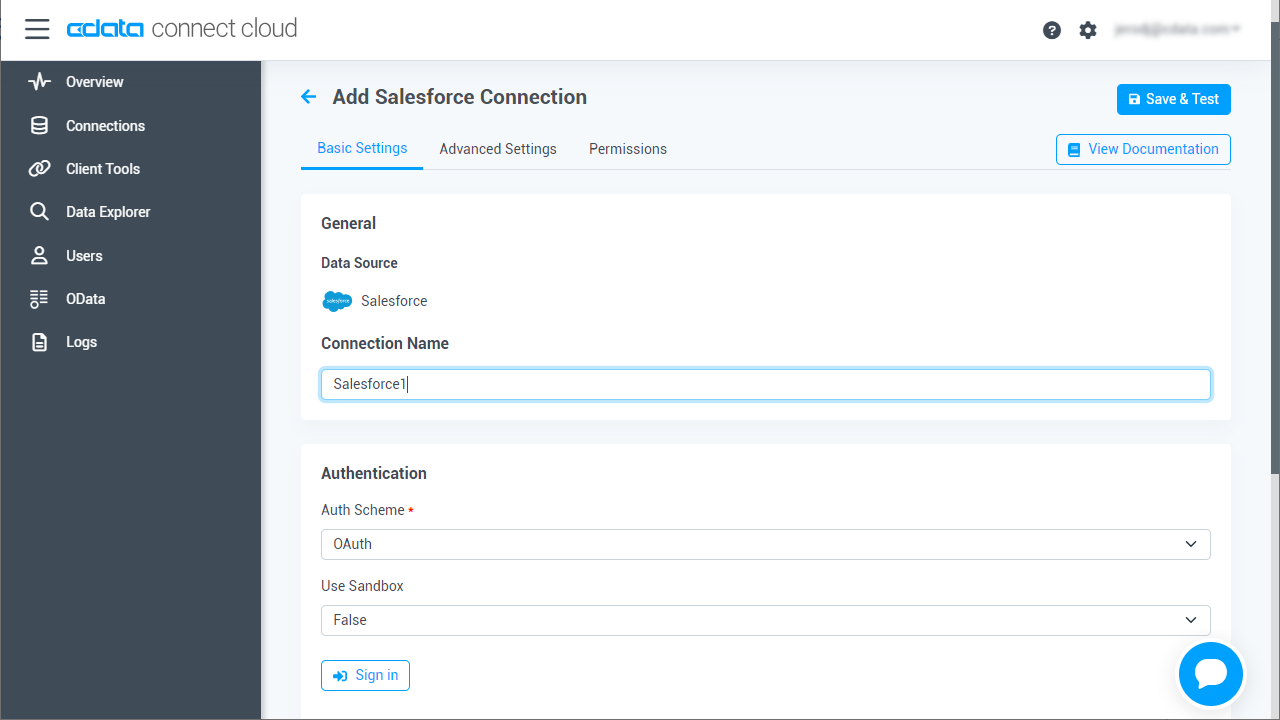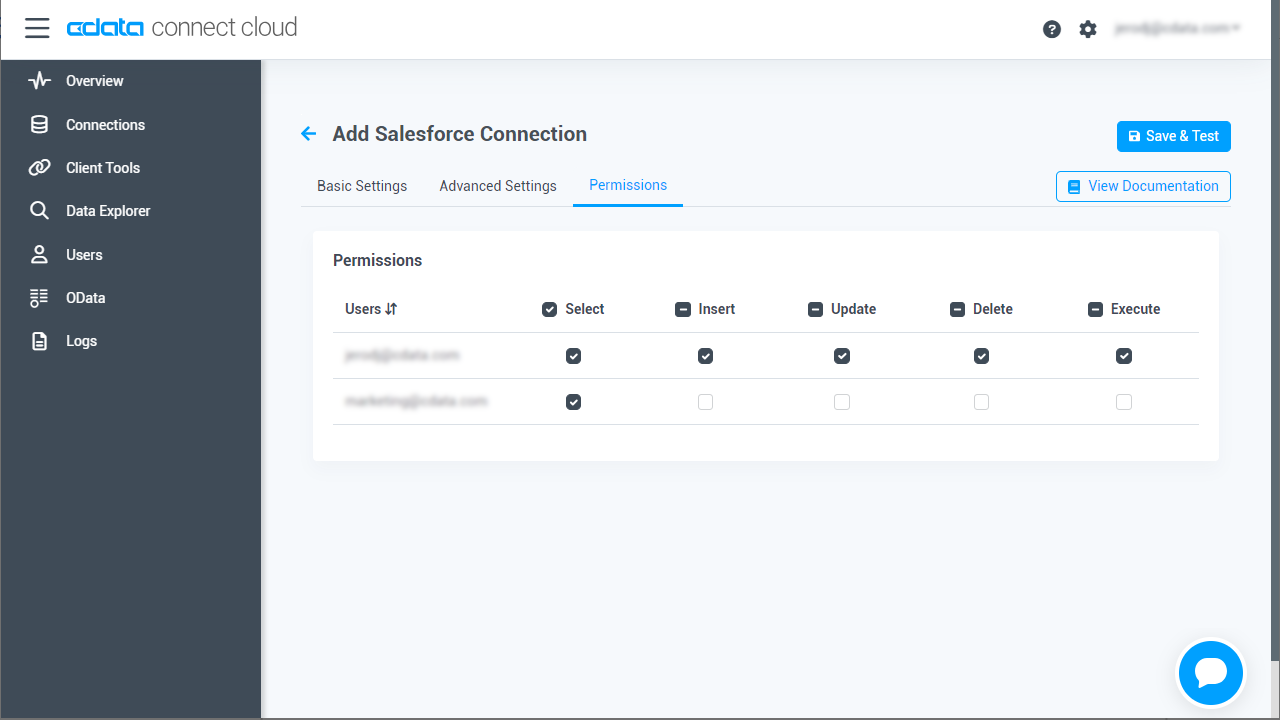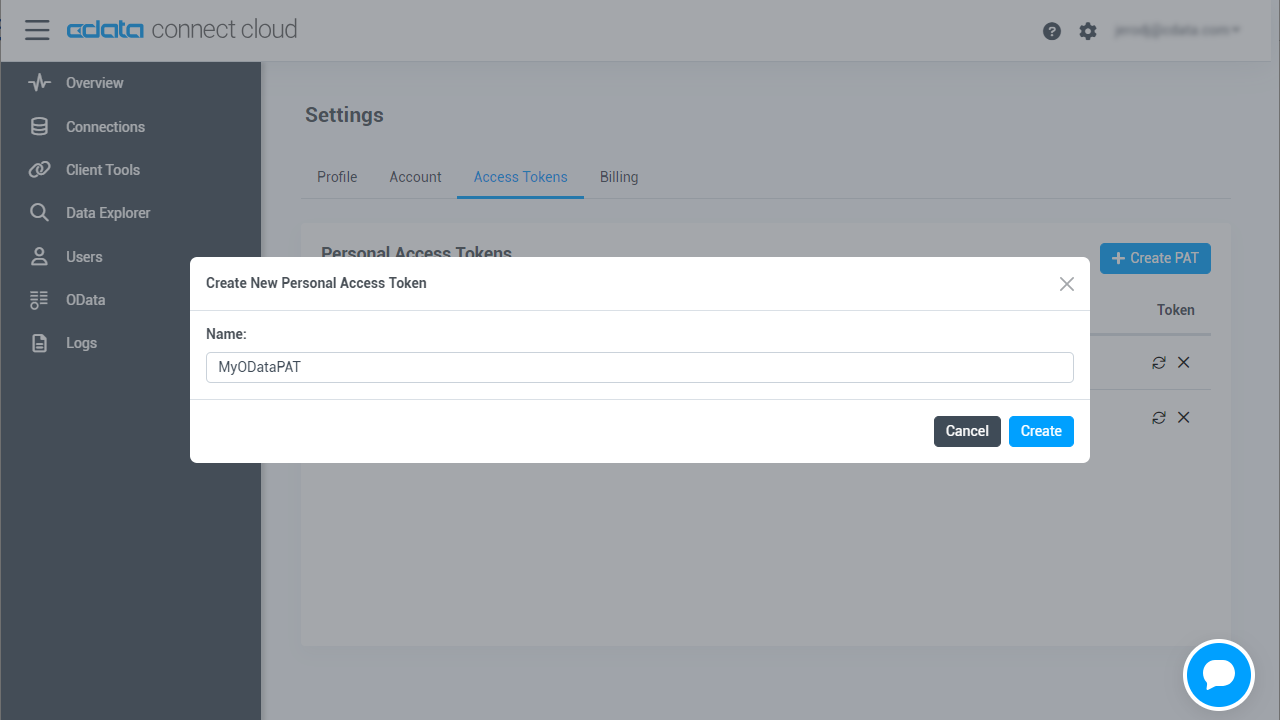Discover how a bimodal integration strategy can address the major data management challenges facing your organization today.
Get the Report →Create Redshift-Connected Nintex Workflows
Use CData Connect Cloud to connect to Redshift Data from Nintex Workflow Cloud and build custom workflows using live Redshift data.
Nintex Workflow Cloud is a cloud-based platform where you can design workflows to automate simple or complex processes using drag-and-drop interactions — without writing any code. When paired with CData Connect Cloud, you get instant, cloud-to-cloud access to Redshift data for business applications. This article shows how to create a virtual database for Redshift in Connect Cloud and build a simple workflow from Redshift data in Nintex.
CData Connect Cloud provides a pure, cloud-to-cloud interface for Redshift, allowing you to build workflows from live Redshift data in Nintex Workflow Cloud — without replicating the data to a natively supported database. Nintex allows you to access data directly using SQL queries. Using optimized data processing out of the box, CData Connect Cloud pushes all supported SQL operations (filters, JOINs, etc.) directly to Redshift, leveraging server-side processing to quickly return the requested Redshift data.
Configure Redshift Connectivity for Nintex
Connectivity to Redshift from Nintex is made possible through CData Connect Cloud. To work with Redshift data from Nintex, we start by creating and configuring a Redshift connection.
- Log into Connect Cloud, click Connections and click Add Connection
![Adding a Connection]()
- Select "Redshift" from the Add Connection panel
![Selecting a data source]()
-
Enter the necessary authentication properties to connect to Redshift.
To connect to Redshift, set the following:
- Server: Set this to the host name or IP address of the cluster hosting the Database you want to connect to.
- Port: Set this to the port of the cluster.
- Database: Set this to the name of the database. Or, leave this blank to use the default database of the authenticated user.
- User: Set this to the username you want to use to authenticate to the Server.
- Password: Set this to the password you want to use to authenticate to the Server.
You can obtain the Server and Port values in the AWS Management Console:
- Open the Amazon Redshift console (http://console.aws.amazon.com/redshift).
- On the Clusters page, click the name of the cluster.
- On the Configuration tab for the cluster, copy the cluster URL from the connection strings displayed.
![Configuring a connection (Salesforce is shown)]()
- Click Create & Test
- Navigate to the Permissions tab in the Add Redshift Connection page and update the User-based permissions.
![Updating permissions]()
Add a Personal Access Token
If you are connecting from a service, application, platform, or framework that does not support OAuth authentication, you can create a Personal Access Token (PAT) to use for authentication. Best practices would dictate that you create a separate PAT for each service, to maintain granularity of access.
- Click on your username at the top right of the Connect Cloud app and click User Profile.
- On the User Profile page, scroll down to the Personal Access Tokens section and click Create PAT.
- Give your PAT a name and click Create.
![Creating a new PAT]()
- The personal access token is only visible at creation, so be sure to copy it and store it securely for future use.
With the connection configured, you are ready to connect to Redshift data from Nintex Workflow Cloud.
Connect to Redshift from Nintex
The steps below outline creating a new connection to Redshift data from Nintex (via Connect Cloud).
- Log into Nintex Workflow Cloud
- In the Connections tab, click "Add new"
- Select "Microsoft SQL Server" as the connector and click "Connect"
![Adding a new SQL Server Connection]()
- In the SQL Server connection wizard, set the following properties:
- Connection Name: a Connect Cloud
- Username: a Connect Cloud username (e.g. user@mydomain.com)
- Password: the Connect Cloud user's PAT
- Database Host: tds.cdata.com
- Database Name: the Redshift connection (a.g., Redshift1)
![Configuring the Connection to Connect Cloud]()
- Click "Connect"
- Configure the connection permissions and click "Save permissions"
![Configuring permissions and saving the Connection]()
Create a Simple Redshift Workflow
With the connection to CData Connect Cloud configured, we are ready to build a simple workflow to access Redshift data. Start by clicking the "Create workflow" button.
Configure the Start Event Action
- Click the start event task and select the "Form" event
- Click "Design form"
- Drag a "Text - Long" element onto the Form and click the element to configure it
- Set "Title" to "Enter SQL query"
- Set "Required" to true
- Drag a "Text - Short" element onto the Form and click the element to configure it
- Set "Title" to "Enter desired result column"
- Set "Required" to true
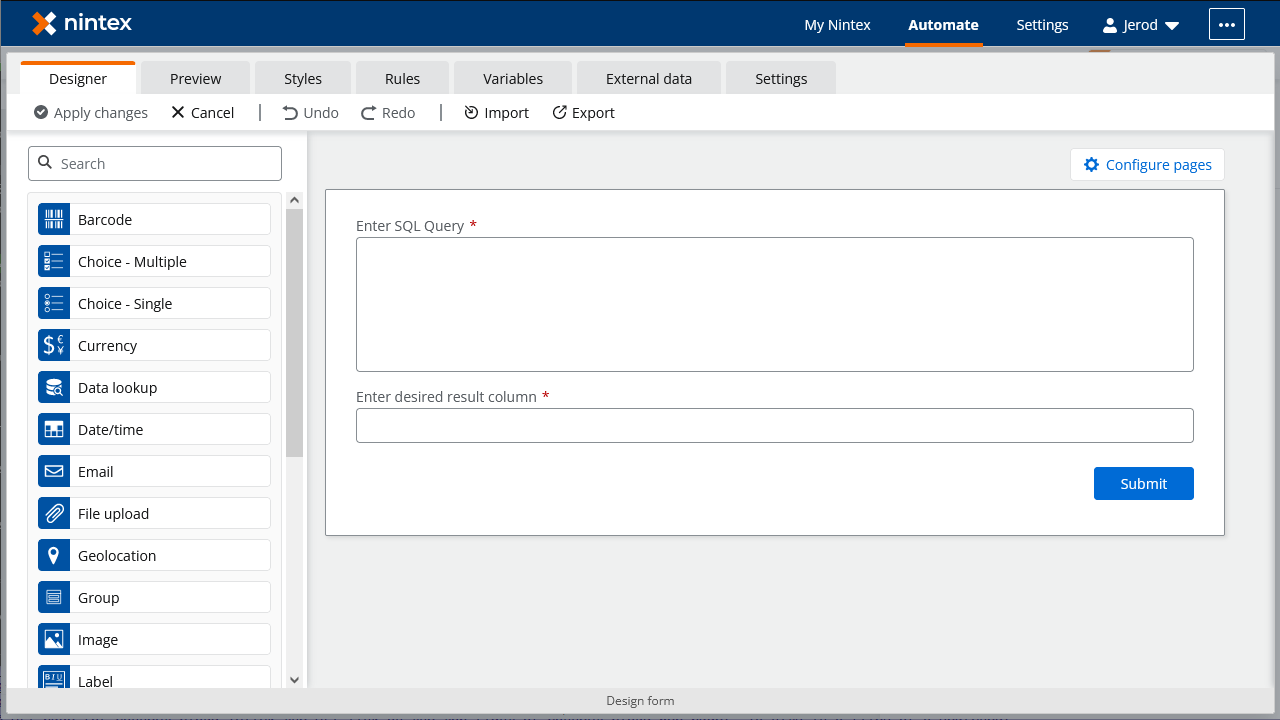
Configure an "Execute a Query" Action
- Add an "Execute a query" action after the "Start event: Form" action and click to configure the action
- Set "SQL Script" to the "Enter SQL Query" variable from the "Start event" action
- Set "Column to retrieve" to the "Enter desired result column" variable from the "Start event" action
- Set "Retrieved column" to a new variable (a.g., "values")
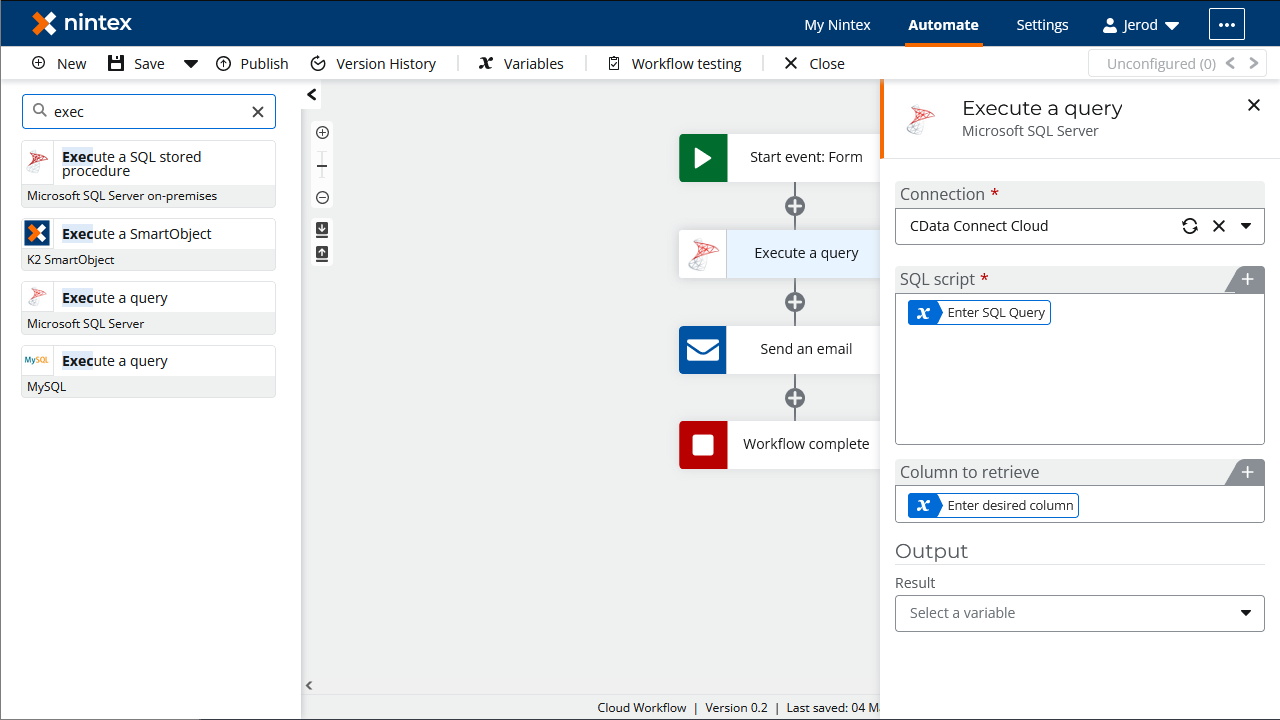
Configure a "Send an Email" Action
- Add a "Send an email" action after the "Execute a query" action and click to configure the action
- Set the "Recipient email address"
- Set the "Subject"
- Set the "Message body" to the variable created for the retrieved column
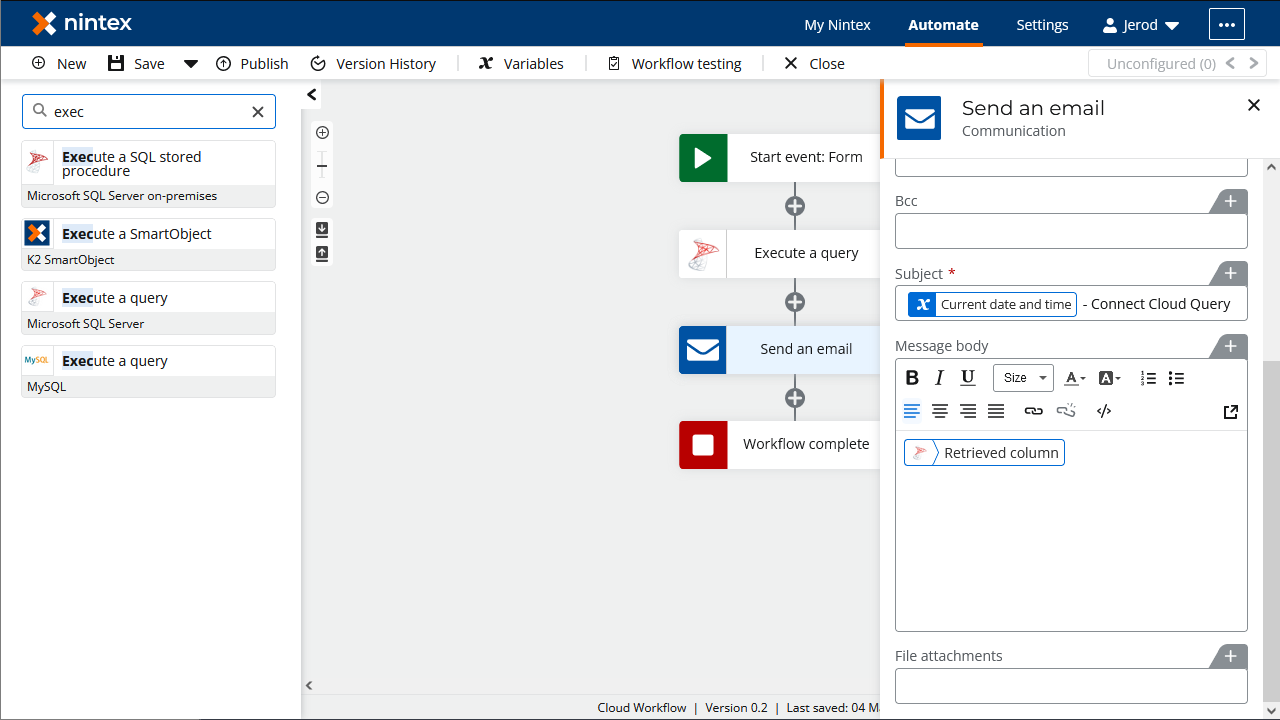
Once you configure the actions, click "Save," name the Workflow, and click "Save" again. You now have a simple workflow that will query Redshift using SQL and sand an email with the results.
To learn more about live data access to 100+ SaaS, Big Data, and NoSQL sources directly from your cloud applications, check out the CData Connect Cloud page. Sign up for a free trial and reach out to our Support Team if you have any questions.






